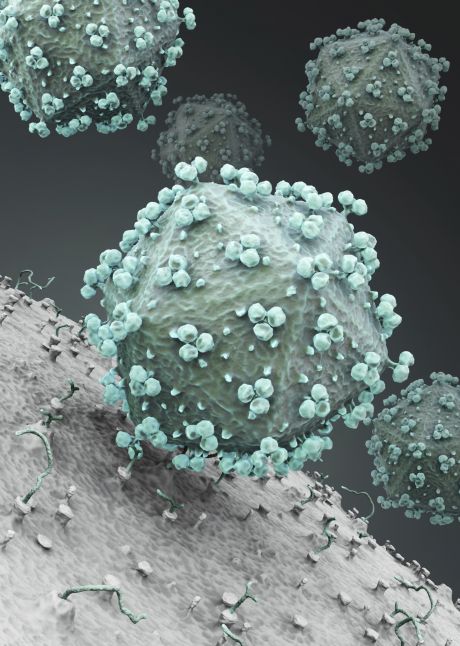Immune system players against HIV

Immune system players against HIV
Despite advances in anti-retroviral therapy, HIV infection remains one of the biggest medical challenges so far. Understanding virus-host interactions is fundamental to the design of new anti-HIV drugs.
Highly active anti-retroviral therapy (HAART) has revolutionised the
outcome of HIV infection. Highly expensive, HAART does not cure
infection and presents with severe side effects including drug
resistance. As a result, the need for designing novel effective drugs
remains.
To address this, scientists on the EU-funded MDIIHIVIA (Mechanisms of deaminase-independent inhibition of HIV infection by APOBEC3 proteins) project concentrated on understanding a specific aspect of the human innate immune response to HIV-1 infection. More specifically, they investigated the human HIV inhibitor protein APOBEC3G (A3G), which the virus counteracts via the VIF protein. The rationale was that understanding how A3G can control HIV could lead to potential targets for antiretroviral therapies.
Accumulating evidence indicates that A3G has a dual function as, one as a DNA editing protein and one that is independent of this enzymatic function. Using various assays, researchers delineated the interaction between A3G and HIV reverse transcriptase (RT). Detailed mapping studies of the interaction sites on A3G allowed them to create single amino acid point mutations that disrupt interaction with HIV RT. Results suggested that A3G counteracted HIV RT through direct interaction with the protein and by introducing RT activity pause sites on the RNA.
Similar methodology was applied towards the characterisation of another HIV restriction factor, SAMHD1. The data revealed the nuclear import of SAMHD1 and its sensitivity to the retroviral accessory protein VPX.
An important technological achievement of the study was the development of a deep sequencing assay for HIV reverse transcription intermediates. This assay could be employed to investigate the consequences of antiretroviral drugs and immune stimulants.
Taken together, the deliverables of the MDIIHIVIA study unveil important information on the molecular interaction of the human immune system components with HIV life cycle. The delineation of the mechanism points towards new anti-retroviral targets that may serve as the basis for the next generation of anti-HIV drugs.
published: 2016-05-02